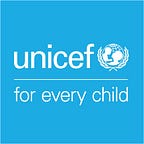Turning five with South Sudan
On 9 July 2016 South Sudan will turn five and so will tens of thousands of children in the country who for much of their lives have known only violence, fear and upheaval.
After more than two years of civil war, what is it like to be a child in South Sudan today? Nearly one million have been forced from their homes by violence; some 400,000 have left school because of the fighting and more than a third of all children are malnourished. These are the stories of six of South Sudan’s five year olds.
Gatchang Moet, 5, from Bentiu, in the Bentiu Protection of Civilians site.
I want to be an airplane driver,” Gatchang answers without delay, standing in the center of the room that he shares with eight members of his family.
Gatchang, his grandfather says, was born on a particularly hot day and can’t remember a time without conflict. When Gatchang was barely two years old his town was all but destroyed in the outbreak of civil war. His family fled to the safety of a UN-controlled Protection of Civilians camp and he has spent most of his life inside the heavily guarded site.
Madadr Tuok, 5, from Bentiu, at the Lich Primary School, Bentiu Protection of Civilians site.
“My mother helps me with my buttons every day before school,” Madadr says as he stands up to show off his small suit.
The school is one of eight operated by UNICEF inside the Bentiu Protection of Civilians site. With a population of over 90,000, and, with over 60% of the residents under the age of 18, the demand for education in the camp is overwhelming.
Speaking of an empty tin of cooking oil, he continues “I carry it as my stool from home each day. If I sit at the front, I can see the teacher.”
Sabri John, 5, from Magwi outside the house that his mother rents in Torit, South Sudan.
“My boots came from Juba,” Sabri says, proud that his boots come from the capital of South Sudan, a city he has never visited. “My mother has a sister there and she works in a hospital.”
Hadia, 13, is the breadwinner of Sabri’s family of 6, including twins born six months ago.
“There is no money for school now,” says Sabri’s mother Rose. “But when the babies are a little older I will go back to work, and Sabri will go to school. I want him to have an education. He could do anything. You can see, he is a good boy.”
Aber Beatrice, 5, and her mother Ida, in the restaurant that Ida runs in Magri, South Sudan.
“I want to be a doctor,” Aber offers, and then adds “to help the people here in Magri.”
Aber’s father, like many South Sudanese, lived for years as a refugee in Uganda during the long civil war for independence, and it was there he met his Ugandan-born wife, Ida. The family moved back to South Sudan just before independence, where Aber was born. With the income from the small family restaurant she runs, Ida sends her daughter to school. She hopes Aber will finish high school, and perhaps go to university.
Susan Andua, 5, outside her mother Florence’s house in Nimule, South Sudan.
“One day she asked her teacher what makes those planes in the sky go,” Florence says with a laugh when she hears her daughter say she wants to be pilot. “Her teacher said that it was people who go to school a lot and at that point Susan decided to become a pilot.”
Only about 10 percent of girls in South Sudan complete primary school, and the typical age of marriage in rural areas is rarely over 15. As a result, more teenage girls die in childbirth than finish high school.
Election Lowata, 5, from Lomolo Village, at a transit centre in Adjumani, Uganda.
“Never! I have never been on a slide before. But I like it,” she says before darting away to take another turn.
Born the year her country gained its independence, her parents proudly named her Election. After two years of failed crops, and persistent cattle raiding by rival tribes, the family ran out of options. Now, in the year in which she and her country turn five, Election and her family have been forced to cross into neighboring Uganda. The morning after her arrival, Election visits a UNICEF-supported children’s area and classroom, even putting up her hand to answer a question.
“I think she will be back every day,” said her proud father Kompeo with the first smile he had shown all week.
Learn more about UNICEF’s work in South Sudan.
